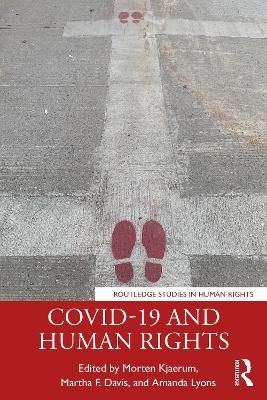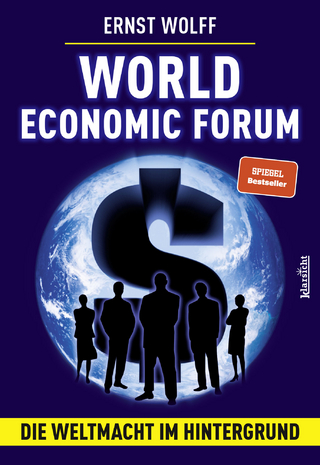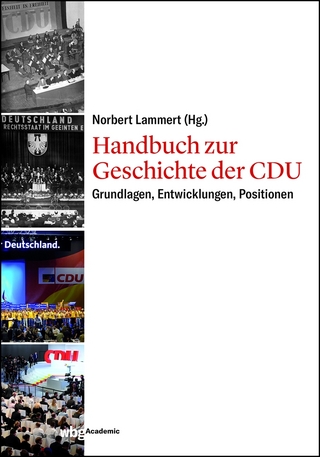
COVID-19 and Human Rights
Routledge (Verlag)
978-0-367-68803-5 (ISBN)
The contributors argue that a human rights perspective is necessary to understand the pervasive consequences of the crisis, while focusing attention on those being left behind and providing a necessary framework for the effort to 'build back better'. Expert contributors to this volume address interconnections between the COVID-19 crisis and human rights to equality and non-discrimination, including historical responses to pandemics, populism and authoritarianism, and the rights to health, information, water and the environment. Highlighting the dangerous potential for derogations from human rights, authors further scrutinize the human rights compliance of new legislation and policies in relation to issues such as privacy, protection of persons with disabilities, freedom of expression, and access to medicines. Acknowledging the pandemic as a defining moment for human rights, the volume proposes a post-crisis human rights agenda to engage civil society and government at all levels in concrete measures to roll back increasing inequality.
With rich examples, new thinking, and provocative analyses of human rights, COVID-19, pandemics, crises, and inequality, this book will be of key interest to scholars, students, and practitioners in all areas of human rights, global governance, and public health, as well as others who are ready to embark on an exploration of these complex challenges.
The Open Access version of this book, available at http://www.taylorfrancis.com, has been made available under a Creative Commons Attribution (CC-BY) 4.0 license.
Morten Kjaerum is Director of Raoul Wallenberg Institute of Human Rights and Humanitarian Law, Lund, Sweden and Adjunct Professor at the University of Aalborg, Denmark. Martha F. Davis is University Distinguished Professor at Northeastern University School of Law, USA. Amanda Lyons is Executive Director of the Human Rights Center at the University of Minnesota Law School, USA.
Part 1: Human Rights During Health Crises 1. Human Rights against Human Arbitrariness: Pandemics in a human rights historical perspective 2. Human-rights-based versus Populist Responses to the Pandemic 3. Human Rights and Health in Times of Pandemics: Necessity and proportionality 4. COVID-19 Risk Communication: The right to information and participation Part 2: Vulnerability and Inequality 5. The Human (Rights) Costs of Inequality: Snapshots from a pandemic 6. Racial Justice to the Forefront: Do Black Lives Matter in international law? 7. COVID-19 and Violence against Women: Unprecedented impacts and suggestions for mitigation 8. COVID-19 and Disability: A war of two paradigms 9. Life and Death in Prisons 10. Seizing Opportunities to Promote the Protection of the Rights of all Migrants Part 3: Cornerstones for Social Cohesion 11. A Paradigm Shift for the Sustainable Development Goals? Human rights and the private sector in the new social contract 12. The Human Right to Food: Lessons learned towards food systems transformation 13. COVID-19 and the Human Rights to Water and Sanitation 14. Land Rights in Crisis 15. How the Pandemic has Impacted the Various Layers of the Global Garment Supply Chain 16. Campaigning for Both Innovation and Equitable Access to COVID-19 Medicines 17. Is COVID-19 Frustrating or Facilitating Sustainability Transformations? An assessment from a human rights law perspective Conclusion 18. The Post-crisis Human Rights Agenda
| Erscheinungsdatum | 01.07.2021 |
|---|---|
| Reihe/Serie | Routledge Studies in Human Rights |
| Zusatzinfo | 1 Line drawings, black and white; 1 Illustrations, black and white |
| Verlagsort | London |
| Sprache | englisch |
| Maße | 156 x 234 mm |
| Gewicht | 700 g |
| Themenwelt | Sozialwissenschaften ► Politik / Verwaltung |
| Sozialwissenschaften ► Soziologie | |
| ISBN-10 | 0-367-68803-4 / 0367688034 |
| ISBN-13 | 978-0-367-68803-5 / 9780367688035 |
| Zustand | Neuware |
| Haben Sie eine Frage zum Produkt? |
aus dem Bereich


